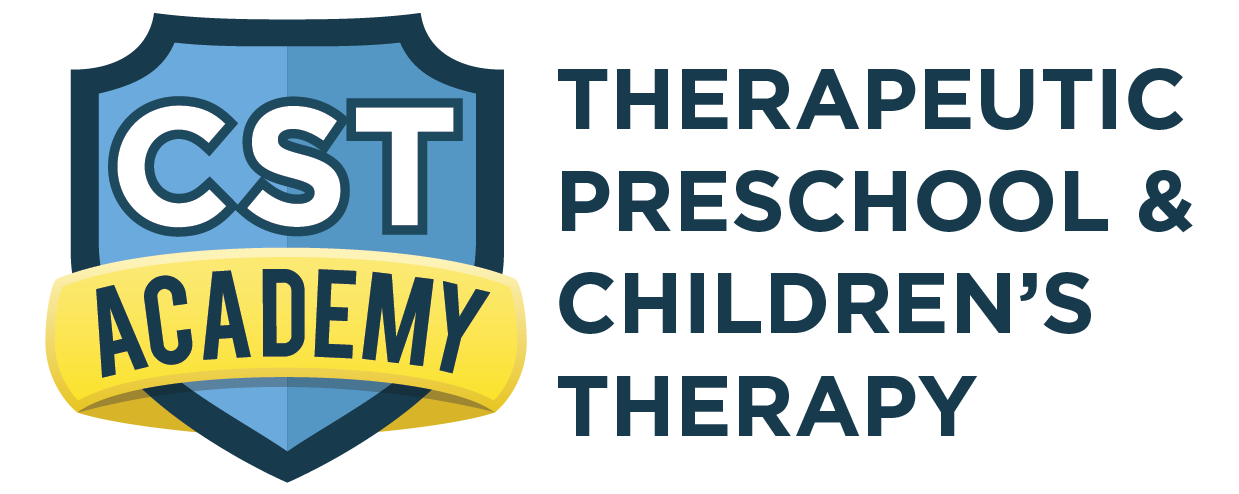Emotional growth is an essential aspect of every child’s development, influencing how they understand, express, and manage their feelings. For children with autism, navigating emotions can present unique challenges due to difficulties with communication, sensory processing, and social interaction. These challenges may lead to frustration or misunderstandings, but with the right support, children can develop emotional skills that build confidence, foster connections, and enhance their overall well-being.
At CST Academy, we are passionate about supporting the emotional growth of children with autism. Our compassionate team of therapists uses evidence-based strategies, individualized plans, and engaging activities to help children understand their emotions, express themselves effectively, and build meaningful relationships. By focusing on emotional development, we empower children to thrive in their everyday lives.
What Is Emotional Growth and Why Is It Important?
Emotional growth refers to the development of skills that allow children to recognize, understand, and regulate their emotions while building empathy and healthy relationships with others. For children with autism, fostering emotional growth is crucial because it helps:
- Improve Communication:
Understanding and expressing emotions enables children to convey their needs and feelings effectively. - Build Relationships:
Emotional awareness supports the ability to form and maintain meaningful social connections with family, peers, and caregivers. - Enhance Self-Regulation:
Learning to manage emotions helps children cope with stress, sensory sensitivities, and unexpected changes in their environment. - Boost Confidence:
Mastering emotional skills empowers children to navigate challenges with greater independence and resilience. - Encourage Academic and Social Success:
Emotional growth lays the foundation for success in school, group activities, and daily interactions.
Challenges Children with Autism Face in Emotional Growth
While every child with autism is unique, many face common challenges in emotional development, including:
- Difficulty Identifying Emotions:
Children with autism may struggle to recognize their own emotions or those of others, making it harder to respond appropriately. - Limited Emotional Vocabulary:
Expressing feelings can be challenging if children lack the words or communication tools to describe what they’re experiencing. - Sensory Overload:
Sensory sensitivities can heighten emotional responses, leading to feelings of overwhelm or frustration. - Rigid Thinking:
A preference for routine or difficulty with flexibility can make it harder to adapt to new situations or manage emotional changes. - Social Communication Challenges:
Difficulty understanding social cues or interpreting body language can lead to miscommunication or social withdrawal.
At CST Academy, we address these challenges with a compassionate, individualized approach that meets each child where they are and helps them build essential emotional skills.
How CST Academy Supports Emotional Growth
At CST Academy, we integrate emotional development into every aspect of our therapy programs. By creating a safe, nurturing environment and using evidence-based strategies, we help children with autism build emotional awareness, regulation, and connection.
1. Individualized Emotional Support Plans
Every child’s journey is unique, and our team develops personalized plans to address each child’s emotional needs and goals. We begin with a comprehensive assessment to identify areas of strength and growth, ensuring that our approach is tailored to their individual needs.
2. Play-Based Emotional Learning
Play is a powerful tool for helping children explore and understand their emotions in a natural, enjoyable way. At CST Academy, we use play-based techniques to:
- Teach emotion recognition through games, stories, and role-playing.
- Encourage self-expression with creative activities like drawing or music.
- Practice turn-taking, sharing, and cooperation during group play.
3. Social Skills Groups
Learning alongside peers provides opportunities for children to practice emotional regulation and social interaction in a supportive setting. Our therapists guide children in:
- Recognizing and responding to social cues.
- Managing frustrations or conflicts in group settings.
- Building empathy and understanding through collaborative activities.
4. Sensory Integration Strategies
For children with sensory processing challenges, managing emotions can be especially difficult. CST Academy incorporates sensory-friendly strategies to help children feel calm, focused, and ready to learn. These strategies include:
- Using weighted blankets or vests to provide calming sensory input.
- Offering sensory breaks to prevent overwhelm during activities.
- Incorporating movement-based exercises that promote self-regulation.
5. Teaching Emotional Vocabulary
Helping children name and describe their feelings is a key part of emotional growth. Our therapists use tools like emotion charts, visual aids, and interactive exercises to build emotional vocabulary and understanding.
6. Parent Collaboration and Training
Parents play an essential role in fostering emotional growth, and we partner with families to provide tools and resources for supporting their child at home. Our parent collaboration includes:
- Teaching strategies for managing meltdowns or emotional outbursts.
- Sharing tips for encouraging emotional communication during daily routines.
- Providing resources like social stories or emotion cards for use at home.
Practical Tips for Supporting Emotional Growth at Home
Parents can help their child develop emotional skills by incorporating simple, supportive strategies into daily routines. Here are a few ideas:
- Use Visual Aids:
Emotion charts, flashcards, or picture books can help children recognize and name their feelings. - Model Emotional Expression:
Demonstrate how to talk about emotions by sharing your own feelings and responses (e.g., “I’m feeling happy because we’re playing together!”). - Practice Mindfulness Activities:
Breathing exercises, yoga, or quiet time can help children calm their bodies and minds during stressful moments. - Create Social Stories:
Use short, personalized stories to teach emotional skills like taking turns, handling disappointment, or asking for help. - Celebrate Emotional Milestones:
Praise your child for identifying and expressing their emotions or using self-regulation strategies.
Why Families Choose CST Academy
Families trust CST Academy because of our dedication to helping children with autism thrive emotionally, socially, and academically. Here’s why parents choose us:
- Expert Team: Our therapists specialize in addressing the emotional and developmental needs of children with autism.
- Personalized Care: Every therapy plan is tailored to meet each child’s unique goals.
- Inclusive Environment: Our sensory-friendly classrooms provide a safe and supportive space for learning and growth.
- Parent Partnership: We work closely with families to ensure progress continues at home and beyond.
A Parent’s Perspective on CST Academy
“Before coming to CST Academy, my daughter had difficulty expressing her emotions and often felt frustrated. The therapists here taught her how to use emotion words, take calming breaks, and connect with others in ways we never thought possible. It’s been incredible to see her grow in confidence and happiness!”
Take the First Step Toward Emotional Growth
Helping children with autism develop emotional skills is a journey filled with meaningful milestones and moments of connection. At CST Academy, we’re here to provide expert guidance, compassionate care, and a supportive community for your child and family.
Contact us today to learn more about our programs and how we can support your child’s emotional growth. Together, we’ll build the skills and confidence they need to thrive.





